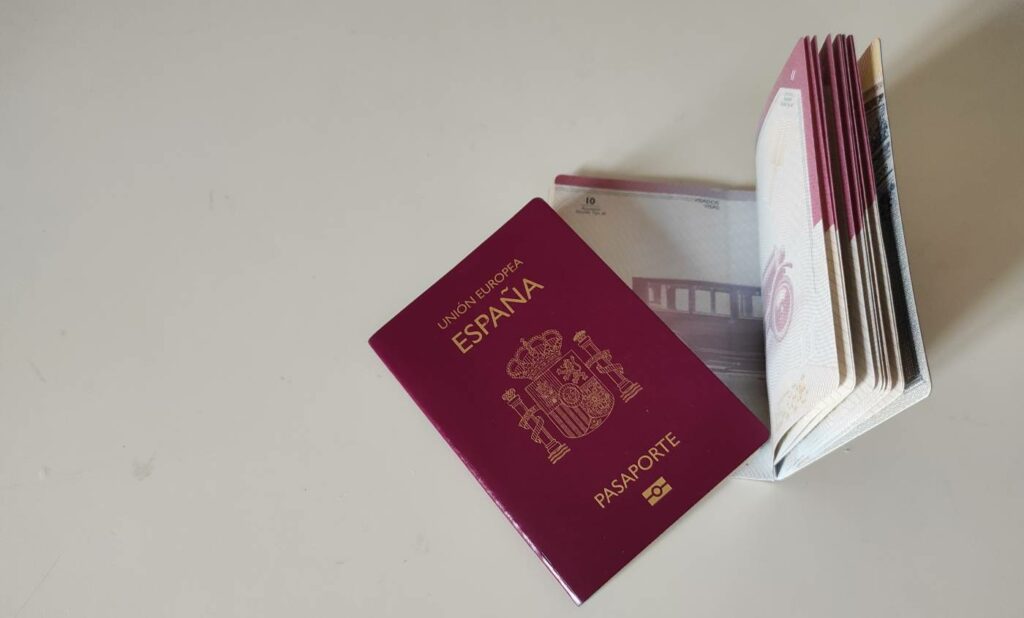How to Obtain Spanish Nationality and What to Do If It’s Not Possible
Spain is a beautiful country with a rich history, culture, and gastronomy that attracts people worldwide. If you fell in love with Spain and want to become a Spanish citizen or resident, this blog post is for you. Obtaining nationality can be lengthy, but the good news is that there are different ways to achieve it. Whether through marriage, descent or non-lucrative visa income requirements, we’ll explore how you, too, can find your path to obtaining Spanish citizenship or residency. So grab your pen and paper (or open your notes app!) as we dive into what it takes to acquire Spanish nationality and what to do if it’s impossible.
Exploring the Different Ways to Obtain Spanish Nationality

Depending on your circumstances, Spain offers different paths to obtain Spanish nationality or residency. One of the most common ways is through marriage to a Spanish citizen. If you’re married to a Spaniard and have been living together for at least one year, you may be eligible to apply for citizenship after one more year.
Another way is through descent. If any of your parents or grandparents are Spanish, you can claim Spanish citizenship by descent. This process can take some time and requires several documents proving your lineage, but it’s worth exploring if this applies to you.
Suppose neither marriage nor descent applies in your case. Other options are available in that case, such as obtaining long-term residency permits or non-lucrative visas for those who meet specific income requirements. These permit holders can eventually apply for citizenship once they’ve met residency requirements.
Whatever path you choose, remember that each process has its criteria and documentation needed, which can differ on a case-to-case basis. It’s essential that before embarking on any journey towards obtaining Spanish nationality or residency, individuals understand their unique situation before applying so they don’t waste time on an ineligible application.
Can You Obtain Spanish Citizenship Through Marriage?
Exploring the Requirements and Process
One way to obtain Spanish citizenship is through marriage. If you are married to a Spaniard, you may be eligible for Spanish nationality after only one year of legal residence in Spain as opposed to the standard ten years required for non-married applicants.
Can I get Spanish citizenship through marriage? You must have been legally married to your spouse for at least one year and reside with them in Spain or another country. You must also demonstrate that you have integrated into Spanish society by passing a language and culture test.
The application process can be lengthy and requires several documents, such as your passport, spouse’s identity card, proof of residency, and criminal record certificates from all countries where you’ve lived. It is important to note that your eligibility may be affected if your marriage ends before obtaining citizenship.
While obtaining citizenship through marriage can be faster than other methods, it is not guaranteed. The process can still take up to two years, and there is always the possibility of rejection if requirements are not met or if there are doubts about the marriage’s validity.
While marrying a Spaniard can expedite obtaining Spanish nationality, it should never be considered solely for this purpose alone. Marriage should always be based on love first rather than just gaining citizenship rights
Applying for Spanish Citizenship by Descent:
Eligibility Criteria and How to Get Started
One of the ways to obtain Spanish citizenship is through descent. This means you may be eligible for Spanish nationality if you have a parent or grandparent born in Spain.
To apply for Spanish citizenship by descent, you must prove your family ties with Spain. This includes obtaining copies of birth certificates and other relevant documentation from your Spanish ancestors.
It’s important to note that specific eligibility criteria exist for applying for Spanish citizenship by descent. For example, if your parent lost their Spanish nationality before you were born, then you may not be eligible.
The process of applying for Spanish citizenship by descent can vary depending on each case. You should seek legal advice and guidance from an experienced immigration lawyer who can help guide you through the application process and ensure all necessary documents are provided.
Obtaining Spanish citizenship by descent can be an excellent option for those wanting to connect with their ancestral roots and gain EU citizenship privileges. However, it’s essential to thoroughly research and understand the eligibility requirements before beginning the application process.
Dual Citizenship in Spain:
Understanding the Rules and Benefits of Holding Two Passports
Dual citizenship allows an individual to hold two passports, allowing them to enjoy the benefits of both countries. In Spain, dual citizenship is permitted under certain conditions. You must meet specific requirements if you are a foreigner and want to acquire Spanish nationality without renouncing your current nationality or passport.
To apply for dual citizenship in Spain, your country of origin must also allow dual nationality. You must also have resided legally in Spain for at least ten years before applying for naturalization. Additionally, you must pass a language test and prove knowledge about Spanish culture and society through exams.
Holding two passports has several benefits, such as increased travel options, access to more job opportunities, social security schemes and better education facilities. Dual citizens can vote in both countries’ elections and even own property without restrictions.
However, there may be some disadvantages too; for example, if any legal issues arise within one country, it could affect your status in another nation where you hold citizenship.
Acquiring Spanish citizenship and retaining the original passport from another country has various advantages but requires fulfilling numerous criteria by lawfully residing in Spain.
Spain Non-Lucrative Visa Income Requirements:
What You Need to Know Before Applying
If you want to obtain residency in Spain but do not plan to work or earn an income while living there, the Spanish non-lucrative visa income requirements may be the right option. However, before applying, it is essential to understand the income requirements.
To qualify for a non-lucrative visa in Spain, applicants must prove they have sufficient financial means to support themselves and any dependents without needing employment or public assistance. The minimum monthly income required is €2,151 per month for the applicant and an additional €537 per month for each dependent.
It’s important to note that this income can come from various sources such as investments, retirement accounts or pensions. Applicants must also provide proof of their assets, such as bank account statements showing sufficient funds available.
In addition to meeting the financial requirements, applicants must undergo a medical examination and obtain health insurance coverage valid in Spain during their stay.
Obtaining a non-lucrative visa can be an excellent way for individuals looking to retire or take time off work while enjoying all Spain offers. Just ensure you meet all eligibility criteria before applying.
Finding Your Path to Spanish Citizenship or Residency
Obtaining Spanish nationality may seem daunting, but it can be achieved with the correct information and guidance. The process can vary depending on individual circumstances such as ancestry, marriage, employment status, etc.
Whether you want citizenship or residency in Spain, several options cater to different situations. Understanding the eligibility criteria and requirements before beginning any application process is essential.
If you’re unsure of where to start or which path is best suited for your situation, seeking advice from an immigration lawyer or consultant can provide valuable insight into navigating through the complex system.
With patience and determination, obtaining Spanish citizenship or residency is achievable. By exploring all possible avenues and following the necessary steps diligently, you’ll be one step closer to making Spain your new home.

















